| All Artists: Bela Bartok, Vermeer Quartet Title: Bartók: String Quartets (Complete) Members Wishing: 0 Total Copies: 0 Label: Naxos Release Date: 5/17/2005 Genre: Classical Styles: Chamber Music, Historical Periods, Classical (c.1770-1830) Number of Discs: 2 SwapaCD Credits: 2 UPC: 747313254323 |
Search - Bela Bartok, Vermeer Quartet :: Bartók: String Quartets (Complete)
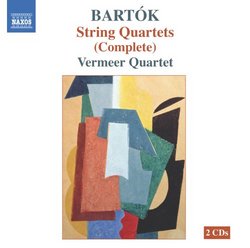 | Bela Bartok, Vermeer Quartet Bartók: String Quartets (Complete) Genre: Classical
|
Larger Image |
CD DetailsSimilarly Requested CDs
|
CD ReviewsTough music with warmth E. Weed | Houston, TX | 01/09/2006 (5 out of 5 stars) "Other reviewers have already given us some excellent commentary about this release, so I'll just add a bit: I've been aware for some time that this group of quartets is considered by many to be amongst the greatest chamber music works of the 20th Century. I've tried getting to know this music through listening to several of the versions that have appeared over the years, including most mentioned in other reviews. This music does not fall easily on the ears (mine, anyway), and I've felt that the versions that I've heard (with the exception of the Vegh's) tend to emphasize the gritty toughness of the music, with special attention to the cutting edge (and virtuosic) nature of the work. And, to the uninitiated, this may cause the music to come across as rather cold and even bleak. (Some might argue that it IS cold and bleak, but I think there's more to it than that.) The Vermeers approach these quartets with a warmer, even romantic bent (as others have noted). I like that. At least for purposes of "learning" these quartets, some listeners (like me) could very well prefer this approach. The sound is fairly warm, and a bit recessed, which, again, for some of us, may be just the thing. If you don't know these quartets, and you want to give them a try, I think the Vermeers represent a great choice...economic, and with an emphasis on the warmer side of this challenging, but stimulating music." Solid, Satisfying, Budget-Priced Bartók Quartets J Scott Morrison | Middlebury VT, USA | 05/26/2005 (5 out of 5 stars) "The six string quartets by Bela Bartók are possibly the most important set of quartets written in the twentieth century -- some might nominate the Shostakovich Quartets for that honor, so there is some disagreement about it -- and they have been extremely fortunate in the recordings that been made of them. I'm probably forgetting some of the important complete sets, but among the notable recordings are those by the Vegh, Juilliard (twice), Emerson, Berg and Hagen Quartets. The Vermeer Quartet, long the resident string quartet at Northern Illinois University who have made substantial recordings of the central quartet repertoire, has entered the field with this super-budget release on the Naxos label. First violinist Shmuel Ashkenasi has been with the group since its founding; other members currently include Mathias Tacke, violin, Richard Young, viola, and Marc Johnson, cello.
These quartets limn the development of Bartók's style from the earliest 'exacerbated Romanticism' of the first two, through the increasingly astringent style of Nos. 3, 4 and 5, on through to a newly romanticized style in No. 6, all with their extraordinarily complex and deeply satisfying formal innovations including Bartók's all-but-patented arch form, variation form, modern counterpoint and a concealed sonata form. Also featured are quotations and reminiscences of folk music, including the deliciously decadent barrel-organ variation in the last movement of the Fifth, which on inspection turns out to be an inversion of the original theme. For a string quartet to successfully traverse all six quartets the group must be able to successfully negotiate the dizzying array of techniques -- including some Bartók invented, like the 'snap pizzicato' -- and styles with complete assurance and aplomb. The Vermeer meets these requirements with ease. They do tend to slightly romanticize the music, at least when compared with some other quartets' approach, but frankly I find this approach easier to digest. Probably their approach is most like that of the Berg, overall, but this is not to say that it is a copy of that estimable quartet's manner. Still, there is a rounded quality to their tone and their rhythmic approach that helps the more spare elements (as in No. 4) go down more easily. Detailing is impeccable, there is wide dynamic variation and the rhythmic brio in the Hungarian folk-inflected sections is infectious yet not over the top or out of control. These are not 'safe' performances, but rather they are closely thought-out and controlled. These are wholly creditable recordings and are made all the more so by their astonishingly low price. I would suggest purchase of this 2CD set for a) those who do not already own a set and are just a bit unsure about whether they really want to invest in a set of Bartók quartets and b) those who own several sets, love the quartets, and want a new version to add to the Bartók section of their CD collection. Recommended. 2CDs TT=2hr34mins Scott Morrison" |

 Track Listings (11) - Disc #1
Track Listings (11) - Disc #1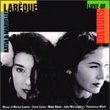
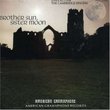
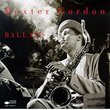

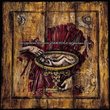



![Across The Universe [Deluxe Edition]](https://nationalbookswap.com/cd//m/51/1251/1241251.jpg)
